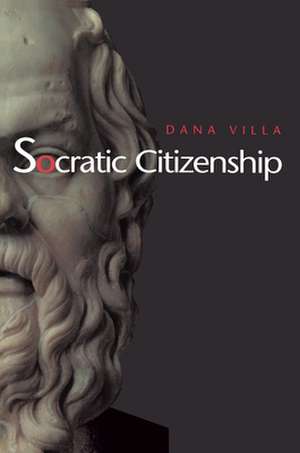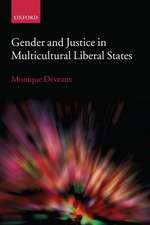Socratic Citizenship
Autor Dana Villaen Limba Engleză Paperback – 28 aug 2001
Taking Plato's Apology of Socrates as his starting point, Villa argues that Socrates was the first to show, in his words and deeds, how moral and intellectual integrity can go hand in hand, and how they can constitute importantly civic--and not just philosophical or moral--virtues. More specifically, Socrates urged that good citizens should value this sort of integrity more highly than such apparent virtues as patriotism, political participation, piety, and unwavering obedience to the law. Yet Socrates' radical redefinition of citizenship has had relatively little influence on Western political thought. Villa considers how the Socratic idea of the thinking citizen is treated by five of the most influential political thinkers of the past two centuries--John Stuart Mill, Friedrich Nietzsche, Max Weber, Hannah Arendt, and Leo Strauss. In doing so, he not only deepens our understanding of these thinkers' work and of modern ideas of citizenship, he also shows how the fragile Socratic idea of citizenship has been lost through a persistent devaluation of independent thought and action in public life.
Engaging current debates among political and social theorists, this insightful book shows how we must reconceive the idea of good citizenship if we are to begin to address the shaky fundamentals of civic culture in America today.
Preț: 402.19 lei
Nou
Puncte Express: 603
Preț estimativ în valută:
76.98€ • 80.05$ • 64.41£
76.98€ • 80.05$ • 64.41£
Carte tipărită la comandă
Livrare economică 15-29 martie
Preluare comenzi: 021 569.72.76
Specificații
ISBN-13: 9780691086934
ISBN-10: 0691086931
Pagini: 392
Dimensiuni: 155 x 233 x 28 mm
Greutate: 0.6 kg
Editura: Princeton University Press
Locul publicării:Princeton, United States
ISBN-10: 0691086931
Pagini: 392
Dimensiuni: 155 x 233 x 28 mm
Greutate: 0.6 kg
Editura: Princeton University Press
Locul publicării:Princeton, United States
Descriere
Takes issue with those who would reduce citizenship to community involvement or to political participation for its own sake. This book argues that we need to place more value on a form of conscientious, moderately alienated citizenship invented by Socrates. one that is critical in orientation and dissident in practice.














